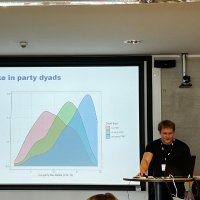
Andres Reiljan
@AReiljan
Max Weber Fellow @EUI_Schuman
ID:915006799903850496
03-10-2017 00:13:15
42 Tweets
282 Followers
425 Following




🗓️Join us on Jan 9, 2024, at 4:30 PM for Andres Reiljan lecture: 'Fear and loathing across party lines: Affective #polarization in comparative perspective'.
👉 Register here: tu-dresden.zoom.us/meeting/regist…
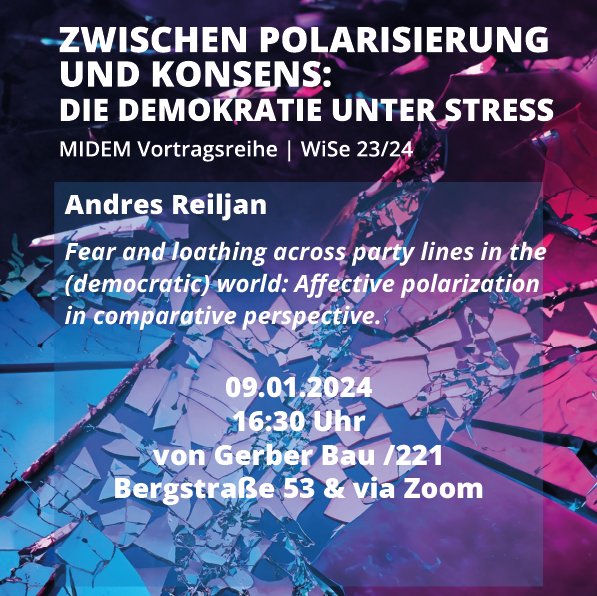


Kõik tublid noored Eesti politoloogid, sotsioloogid, ajaloolased, õigus- ja majandusteadlased...Kandideerige European University Institute-sse doktorantuuri! Mina 9 aastat tagasi kandideerisin, läksin, ja ei kahetse. Homme Zoom'is saate Maarja Saluste käest rohkem infot.

Explaining to the colleagues The Robert Schuman Centre what we have to go through to make sense of affective polarization in multiparty systems. USA = Party like-dislike matrix with 4 cells, Sweden = Party like-dislike matrix with 64 cells…
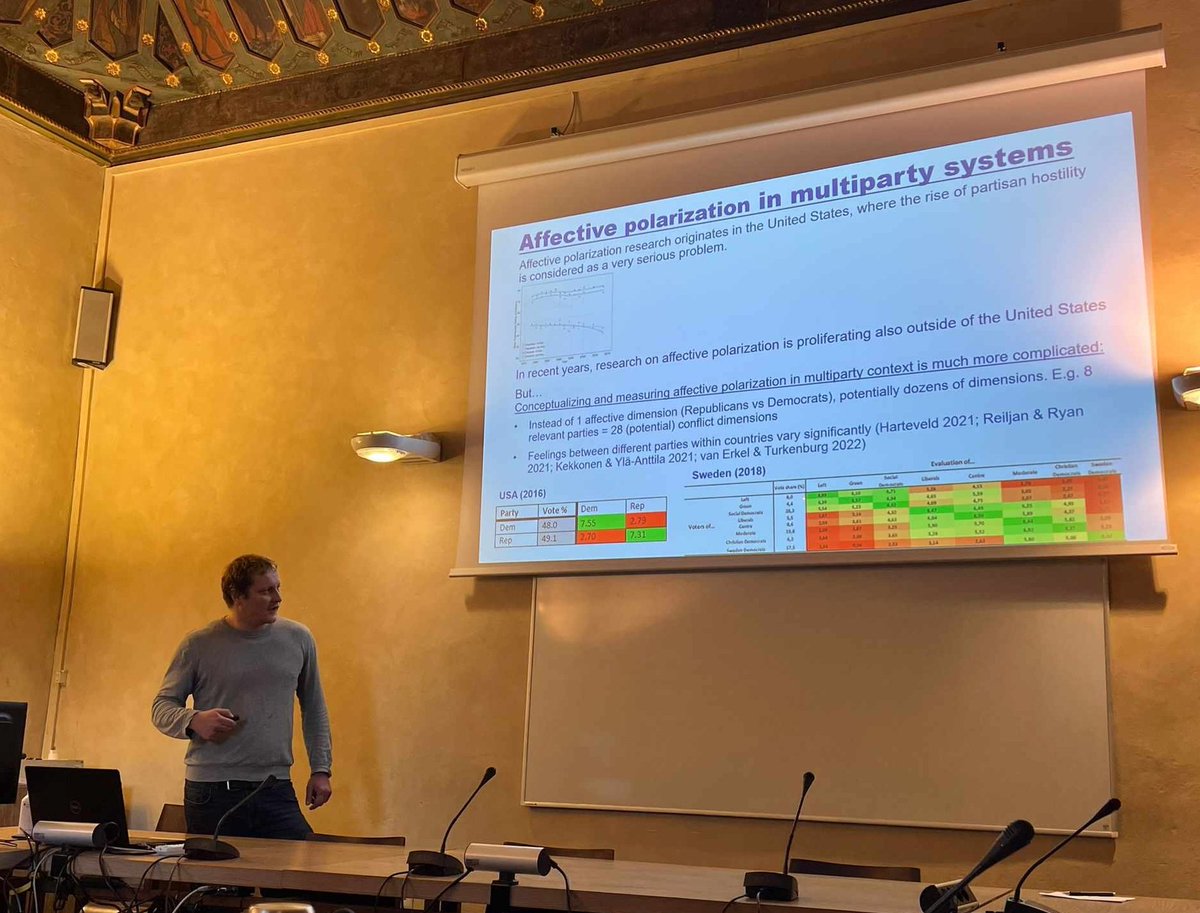

Thank you to all who sent abstracts for this semester's PBC.🙌 See below for the Oct-Dec 2023 schedule.
We will send another call for papers out in November for Jan-June 2024, so keep an eye out. To join our mailing list, contact: [email protected]
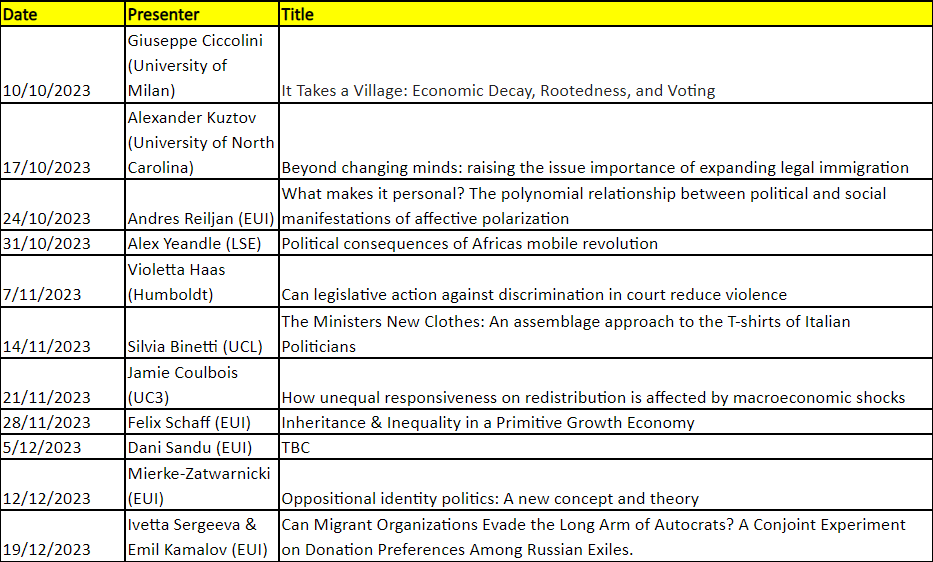

Comparing levels of party affective polarization (PAP) and leader affective polarization (LAP), Andres Reiljan, Diego Garzia, Frederico Ferreira da Silva, & Alexander H.Trechsel illuminate LAP as systematically lower than PAP with the US as the only exception.
#APSR
#APSR FirstView
ow.ly/q4W050PTGeK


Happy and also very surreal to see my master’s thesis published as a single-authored paper in the EJPR journal 🥂
ejpr.onlinelibrary.wiley.com/doi/10.1111/14…
In this paper, I explore the crucial link between polarization and citizens’ response to electoral victory and loss
🧵1/7
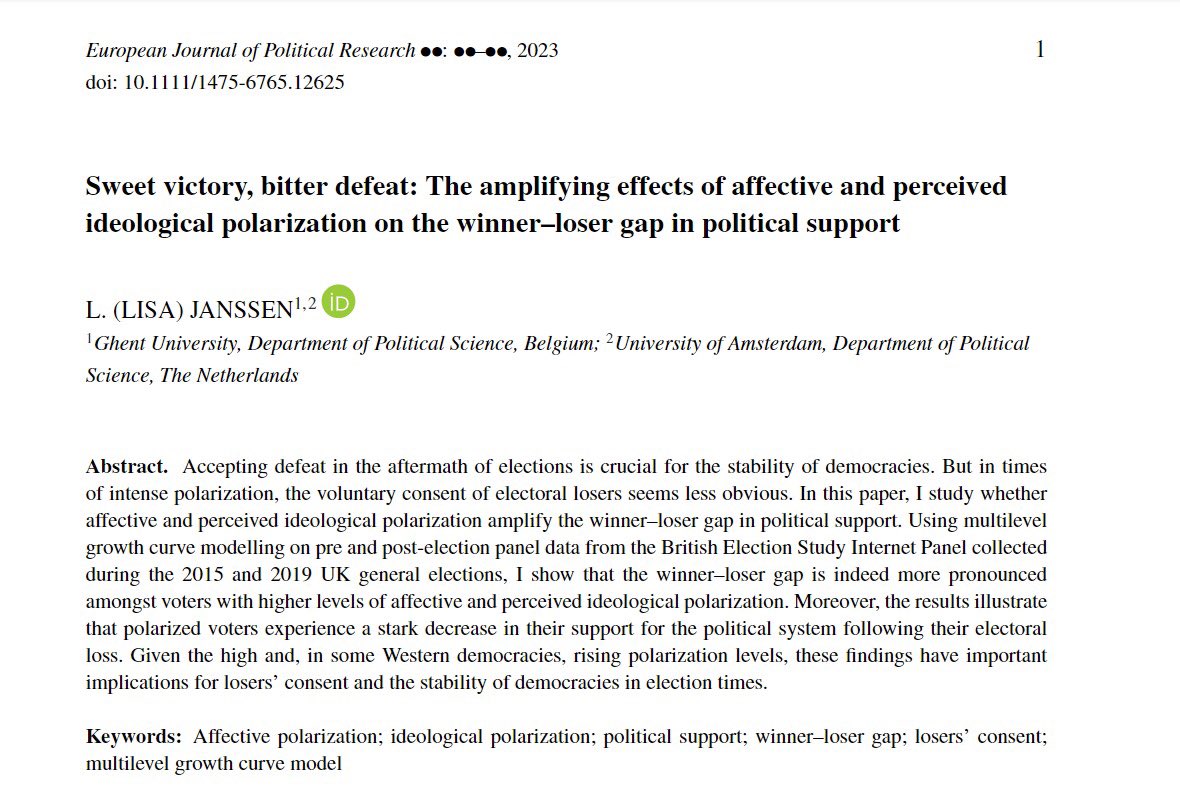

Last week, RECSM brought together leading academics in a series of workshops on the topic of #AffectivePolarization .
Thank you to all those who contributed to such a rich debate and the making of the handbook of affective polarization, expected to be published in late 2024!



🌳 What is the added value of adopting a regional approach?
Luca Bettarelli Andres Reiljan Emilie van Haute use data from CSES to investigate the scope of regional variations in levels of #affectivepolarization across #Europe
👉 bit.ly/3K5E1mY #OA

Our paper on 'A regional perspective to the study of affective polarization' with Andres Reiljan & Luca Bettarelli is now out in vol.62 EJPR journal
#polarization #regions #Europe
ejpr.onlinelibrary.wiley.com/doi/10.1111/14…


Is affective polarization on the rise in Western democracies?
In this new #openaccess article w/Diego Garzia & Simon Maye, just out in Public Opinion Quarterly (aapor), we carry a longitudinal analysis of affective polarization in 18 Western democracies
academic.oup.com/poq/advance-ar…
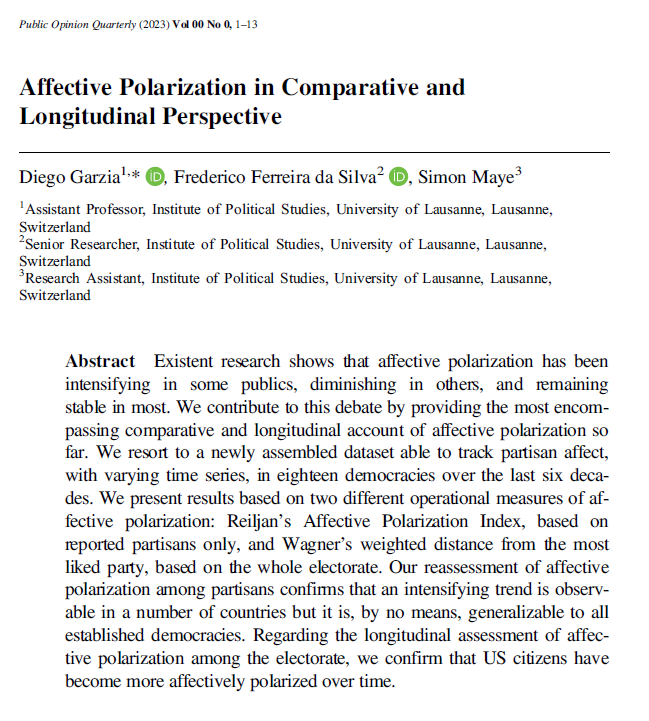

It just came out the complete especial issue on comparative affective polarization that I co-authored with Andres Reiljan and Lisa Zanotti. It contains 8 great articles. Thanks to all contributors:
Affective polarization in comparative perspective frontiersin.org/articles/10.33…